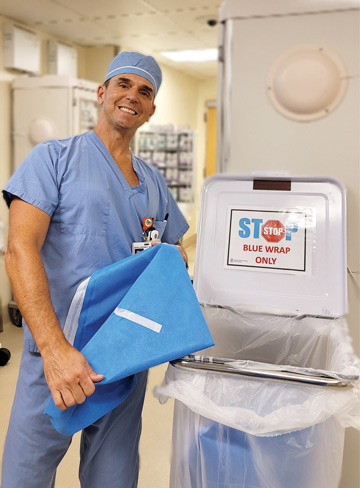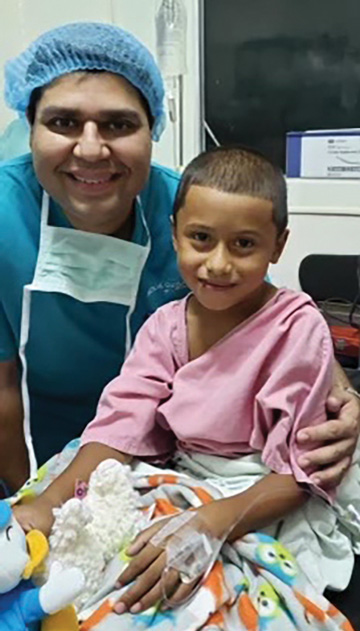Change is difficult, especially in health care. Even if an idea sounds easy to implement, getting the effort off the ground and your team on board can be the hardest part. But this didn’t deter Memorial Sloan Kettering Cancer Center in New York City from integrating sustainability efforts within the perioperative setting. Their endeavors to reduce energy, usage and waste while increasing recycling efforts has made the cancer center this year’s winner of the OR Excellence Award for Environmental Stewardship.
The facility developed a Greening the OR Committee, which is made up of perioperative leadership, nurses, surgeons, anesthesia, environmental services, facilities management, radiology, supply chain staff and surgical support staff. The committee’s mission was to come up with ideas on how to be more energy efficient, reduce waste and procure more sustainable items. “The remarkable thing about the committee is how engaged everyone is in the mission,” says Yessenia Salgado, MS, BSN, RN, NE-BC, CNOR, director of nursing for perioperative services at the facility and co-chair of the committee. “Current efforts are aligned in supporting the facility’s Blue Wrap Recovery and Recycling Project.”
.svg?sfvrsn=be606e78_3)


.svg?sfvrsn=56b2f850_5)